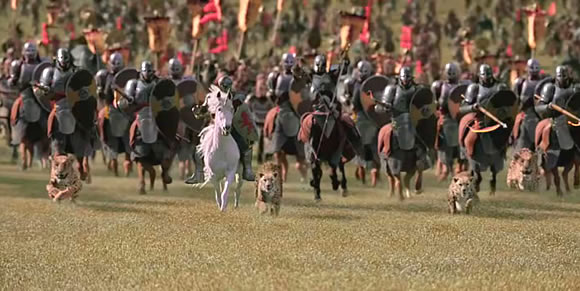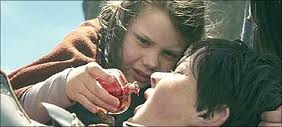This is a very, very, late midterm post, and for that I'm sorry. Hopefully, the content can make up for it, so I'll be trying my best.
______________________________________
"Eyes mark the shape of the city.Through the eyes of a high-flying night bird, we take in the scene from midair. In our broad sweep, the city looks like a single gigantic creature-or more like a single collective entity created by many intertwining organisms. Countless arteries stretch to the ends of its elusive body, circulating a continuous supply of fresh blood cells, sending out new data and collecting the old, sending out new consumables and collecting the old, sending out new contradictions and collecting the old. To the rhythm of its pulsing, all parts of the body flicker and flare up and squirm. Midnight is approaching, and while the peak of activity has passed, the basal metabolism that maintains life continues undiminished, producing the basso continuo of the city's moan, a monotonous sound that neither rises nor falls but is pregnant with foreboding."
- Haruki Murakami, an excerpt from his book After Dark

So, as many of you may (or may not) know, I consider myself to be an urbanist! And in my blog post, I will be discussing what that means and how urbanism affects our cities.
Urbanism is, at it's very heart, is a philosophical belief that the city can offer a excellent place to foster the qualities and the advancement of humanity. It's the idea that the city, in effect, has the power to foster the march of civilization through providing a malleable and diversified melting pot of ideas, personalities, and cultures. As William James may have put it, the city represents an idea of pragmatism and pluralism, because the city represents a place where people are forced to interact with each other, where two intersecting lives critically engage each other to provide a greater meaning of "self" to a much larger whole.
So essentially, what does this mean? The city itself, while it does exist, is ultimately characterized by not by it's mere existence, but by the people that live in it. The city remains in a constant flux between place and placelessness because the definition of city changes with how its inhabitants view and interact with it. The city morphs into a kind of sounding board for it's residents, amplifying the voices of the many while coming to a distinct synergy that moves it forward in a constant state of abstract equilibrium. John Dewey, another American philosopher and psychologist, believed that not only was the city a malleable concept, it allowed for the advancement of democracy as well as it allowed for a way for citizens to project their personalities onto the environment and to build a ever-changing sense of place in the hopes of a better society.

In summary, the city is a melting pot of intertwining experiences, and it's from this convergence of philosophies and actions the character or our cities are born. When someone walks out onto the street to walk to the corner store, rides in a crowded bus or train to their destination, enjoys coffee and pastries at a local cafe, or decides to read book in the park on a sunny day, they inadvertently contribute to the social fabric of our cities by characterizing them through their interaction with the environment. It is because of this ever-constant public interaction that we breath life into this man-made ecosystem of change and progress.
So, why am I am urbanist? Growing up near a city (and in the suburbs), my life, and pretty much the lives of nearly 250 million other Americans are tied to the fates of their cities, and living on the cusp of one of America's famous poster child cities for sprawl, I could see how the destruction of the city and the rise of the suburbs was inexplicably linked, and personally, the lifestyle I was leading just didn't fit for me.

Born out of a Le Corbusier-like, over-romanticized desire to “commune” with nature while living close to their homes, powerful automotive companies, home builders, special interest groups, and ultimately the government played a role in highly subsidizing the growth of American cities by proving deep incentives for developers to develop large tracts of land outside the city centers for the construction of homes called subdivisions. Using the newly-created Interstate Highway System, both parties made it possible for people to leave the cities and move to the suburbs, effectively beginning the destruction of the city. The suburbs quickly became everything the city wasn't; stratified, segregated, and isolated, and the general urbanist consensus is that suburbia is in the long-term detrimental for the health of our society.
The response to the rise of the suburbs by the urbanists has been muted, but as many cities across America began to suffer the true effects of suburbanization, a movement called New Urbanism began to rise, and it epitomizes the late 20th century and early 21st century movement to revive America's cities. So, how would an urbanist respond to today's cities?

The most important thing when trying to make a city livable is to remember the humanistic element that exists in all of our environments. Instead of being designed to cater to the safety and comforts of pedestrians, our cities have bent their backs to cater to automobiles and the suburban population. In every American city, gray and dead parking decks and parking lots litter the landscape where historic buildings once stood. Interstate highways were slammed through minority and low-income neighborhoods in cities all across America, and the result was the decay of once-proud neighborhoods into infamous areas of urban blight. Mixed-use, commercial buildings have been replaced by cold, sterile, monolithic office buildings that try to emulate the style of the suburbs and fail to interact with the street and the area around them. Even in the design of the streets and the areas where people come together to interact, preference is given to getting the driver speedily from point A to point B rather than protecting the interests of the pedestrian.
This kind of lopsided, uneven urban design marginalizes those who choose to live in a city, and more importantly it discourages the city as a place of life. The number one most important thing for a city to have is an livable environment, and something and urbanist can truly appreciate is a place where people can live truly with the city, as opposed to being separate from it.
What are the qualities of a good city? They will vary from person to person, but there are some key qualities that go into creating a lively neighborhood and a successful city.
1. A Walkable, Engaging Environment – Places where people can safely commune or enjoy a walk through encourage sociability and overall represent broad overtures towards bringing life to a neighborhood. Establishments like shops, street-side restaurants, and even buildings like townhomes all contribute to creating a valuable aesthetic environment for the pedestrian. When located close to enough to places of settlement or within access of sustainable transportation, it's an even greater bump to the liveliness of the neighborhood. In the end, these initiatives promote street activity and promote the idea of a livable neighborhood.

2. Adequate Public Transportation – A staple of suburbia is the cult of the car and the overwhelming dependency that has grown to characterize life in the suburbs. Without a car, mobility is only possible for the privileged and able, and everyone else, especially the young, old, and poor, are marginalized by their inability to becoming active participants in society. A major part of urbanism is giving people back their freedom from automotive tyranny by challenging the ubiquity of the car, and that is done by promoting alternative forms of transportation. Public transportation and sustainable forms of private transportation like cycling are great ways to bring character and life to a city, and by discouraging automobile use, municipalities can begin to focus on people instead of cars.

3. Accessible, Open Public Spaces – Essential to the health of any community, public spaces like parks, libraries, and recreational facilities should be open to the public for everyone to use. Communal spaces like these are important for building character and life in a community, and these places go a long way towards giving character to a neighborhood and allowing for a place of assembly as well as a place of relaxation.
These are just a few of the things New Urbanists look for in a successful urban establishment, and the more a city has of these things, the more successful it will usually be. Cities like Savannah, Charleston, Celebration, and even larger ones such as san Fransisco, New York, Boston, and Chicago, have been able to become places of culture, character, and popularity because of how they treat their people, not their cars. Places like Phoenix, Houston, or Charlotte, cities famous for their sprawling growth, still hhave some ways to go in terms of both notoriety and urbanism, however.
Overall, I staunchly believe that urbanism is a better, more sustainable way of life than living in the suburbs. Other than the reasons listed above, there is a certain allure, a type of magic about being in a lively city that can't be replicated anywhere else, and this implicit, ethereal feeling has not only caused me to fall in love with the city but has inspired me to lead a new way of life as well. Through urbanism, it is my hope we can achieve a more wholesome way of living through once again becoming a society through our surrounds and communing like we once did before.


















.jpg/240px-Skandar_Keynes_as_Edmund_Pevensie_(2008).jpg)
